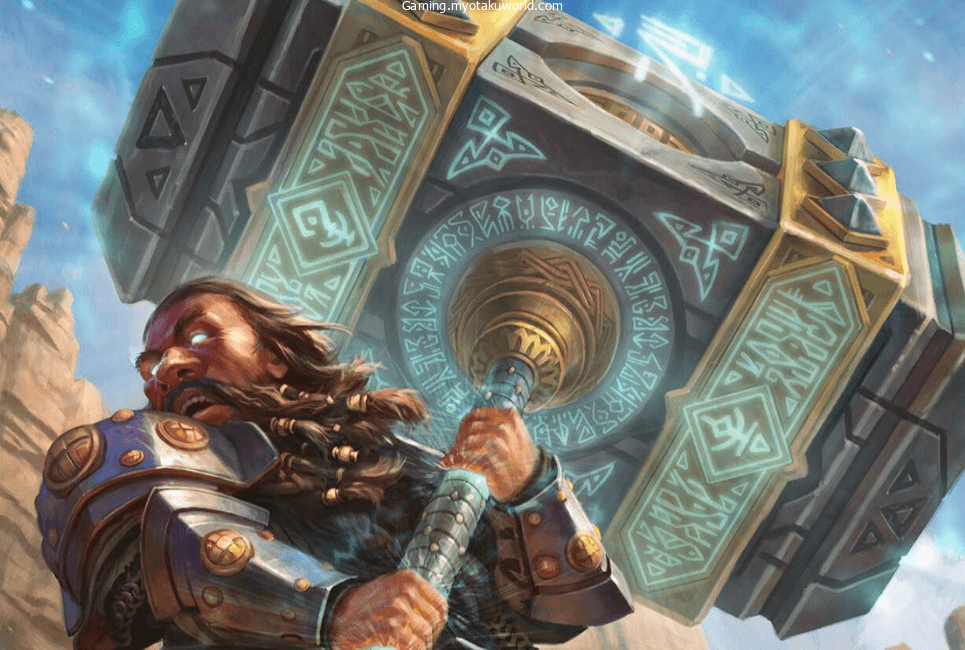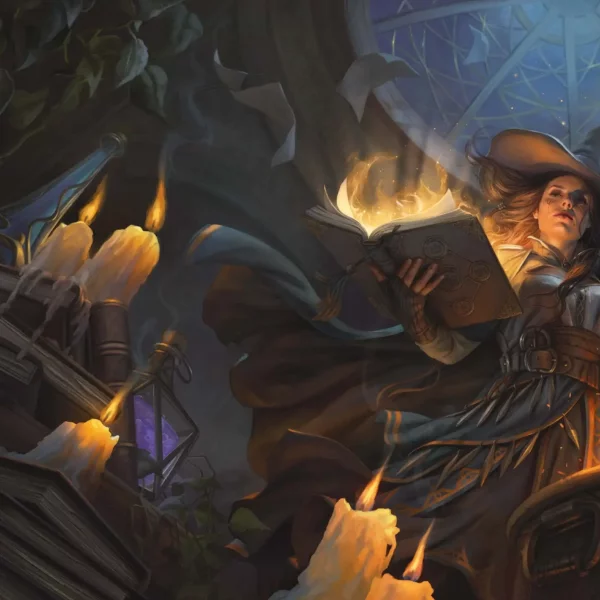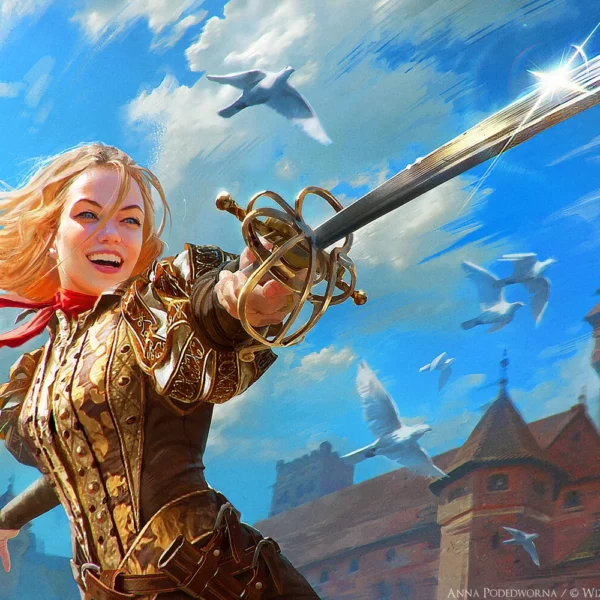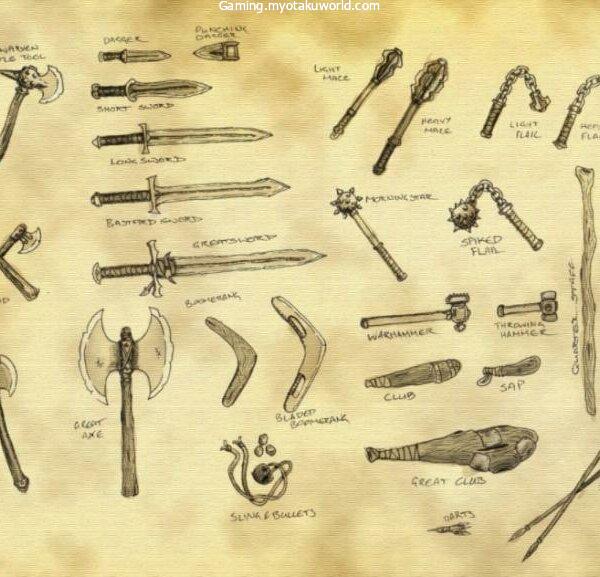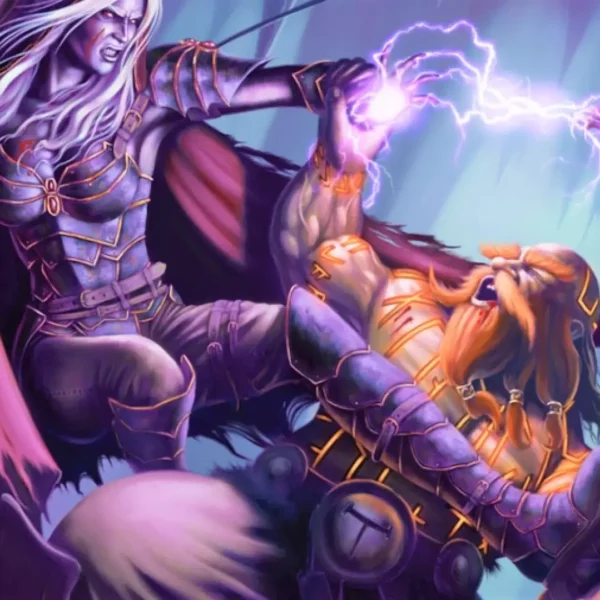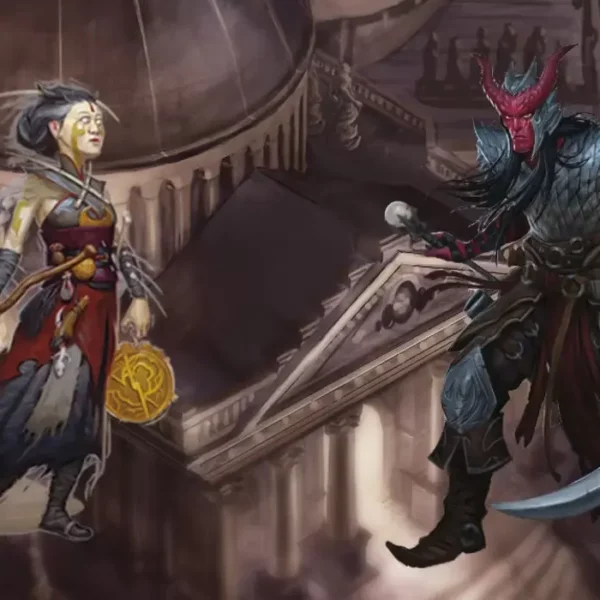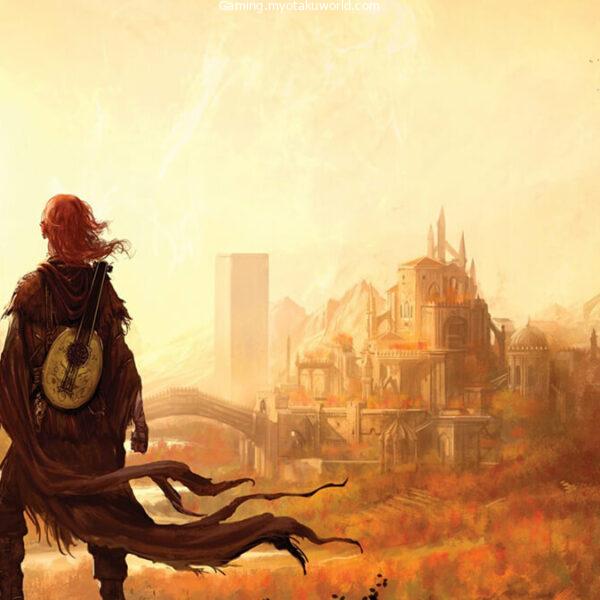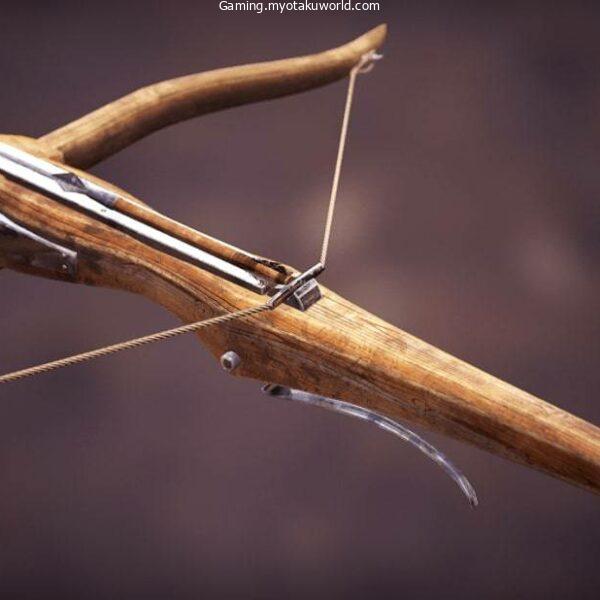Stop! Hammer time.
Really, it’s time to hammer. We should talk about hammers now. In particular, the big ones: Mauls!
Have you ever used a warhammer and thought, “This would be better if it were a little heavier”?
Have you ever used a club and thought, “This could be better if it were made a little differently”?
Have you ever used a net and thought, “Oh my gosh, this is awful! Maybe I should use a real weapon; for some reason, I like the idea of a gigantic reinforced sledgehammer”?
If you answered “yes” to any of these (admittedly very specific) questions, you may have found your weapon, and what a great weapon it is!
Welcome to a Maul 5e guide!
Bottom Line, Up Front
A maul is a large martial weapon that looks like a sledgehammer, needs both hands to use, and does 2d6 bludgeoning damage.
It weighs 10lb and costs 10gp, which is a good deal. Mauls are made to smash and destroy, both on and off the battlefield.
What is A maul?
A maul is a big hammer that you hold with both hands. Mauls usually have one side of the hammer that is flat and one side that tapers to a point like an axe or pick, but is thicker and less sharp.
At first, they were made to split wood.
They are good for this job because of how heavy and wide they are. Not all mauls are made this way. Some have a much simpler, flat-on-both-sides shape like a sledgehammer.
By making the handle stronger, they become dangerous weapons that are often used to hunt things that are easy to hurt with a blow, like the undead.
Stat Block
For the sake of easy reference, here are the typical statistics for a maul:
- Category: Weapon
- Weapon Type: Melee, Martial
- Rarity: Standard
- Damage: 2d6
- Damage Type: Bludgeoning
- Properties: Heavy, Two-Handed
- Weight: 10lb
- Cost: 10gp
Special Properties
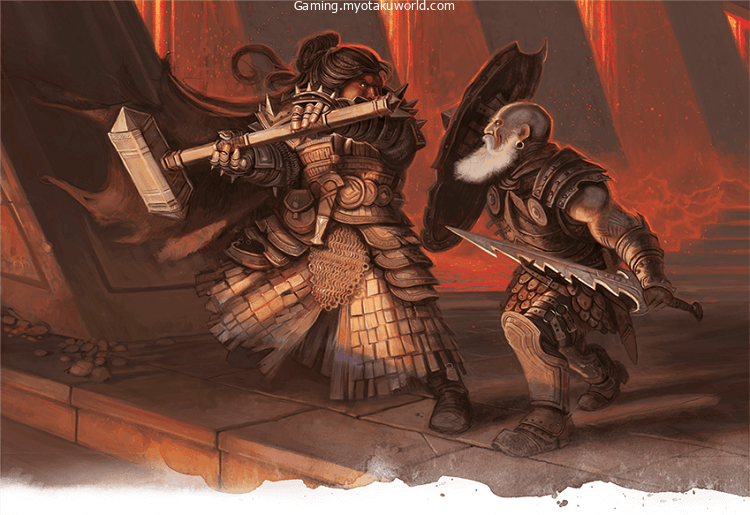
There are two special things about the maul that you should think about if you want to use it:
Heavy
This property shows how hard it would be to lift a weapon that is so big and heavy.
So, small creatures can’t use it without being at a disadvantage when they roll to attack. It’s important to remember that this isn’t something that can be fixed by having a very high strength stat.
Even a halfling with a 20 in strength will get this penalty because the weapon is just too big and heavy for them.
So, is this property just a way to stop small creatures from using certain weapons?
No, not at all. It also lets the Great Weapon Master feat shine, which gives heavy weapons an extra option (more on later).
Two-Handed
This means that a weapon can only be used with two hands. This means that you can’t use it as a shield or two weapons at once.
It’s also hard to cast spells because you usually need one hand free for somatic and material components. This may seem harsh, but the extra force and damage you can do with a big weapon makes up for it.
Classes that Can Use Mauls
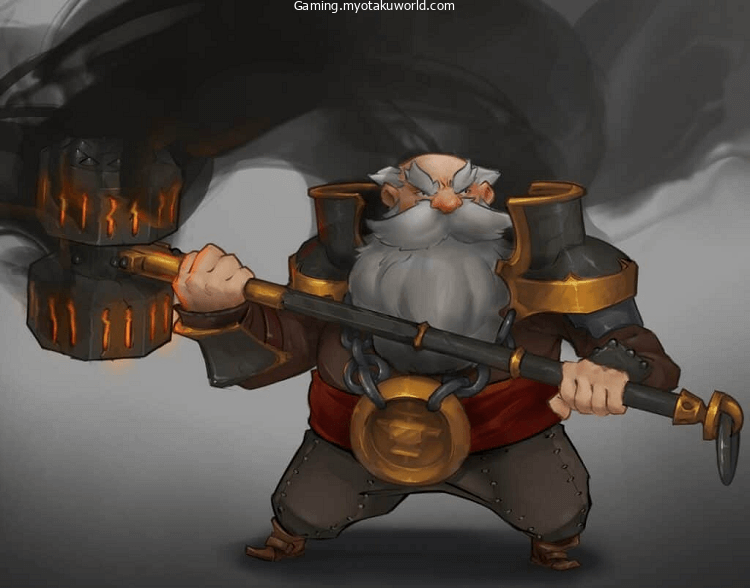
Some D&D classes are better than others at using weapons. But it’s important to remember that this isn’t the only way for a character to learn about weapons.
For example, players of any class can take the Weapon Master feat, which lets them learn how to use four weapons of their choice.
So, here is a list of the classes that can use mauls as part of their natural skills:
Barbarian
Barbarians don’t use shields very often. Instead, they use the power of being very angry to reduce the damage they take.
Because of this, they are good for two-handed weapons. Most barbarians who want to live out their Conan fantasies are looking for a greataxe or greatsword, but a maul is much cheaper and easier to find.
If you’re short on gold, a maul isn’t a bad go-to weapon, and you might want to keep it so you can switch between slashing and pounding damage.
Fighter
Fighters are more likely than barbarians to prefer shields over big weapons, but the maul can still be used by quite a few builds.
A barbarian/fighter who has more than one class often uses these weapons and can do a ridiculous amount of damage on the front lines.
Ranger
Rangers value movement and speed. Most of the time, dexterity is their most important stat.
Most of the time, they want their weapons to reflect this, so they use a bow or two finesse weapons at once.
This makes a maul an odd choice, but a strength-based ranger can still use it well. This makes for a unique build.
Paladin
With a big hammer, it’s a little harder to crush skulls with righteous zeal than with a small one.
Paladins, like fighters, may want to use a shield, but if they don’t, a maul is a great choice.
Undead are often weak to bludgeoning damage, which is why paladins are often sent to kill them.
Cleric (War/Tempest/Twilight Domain)
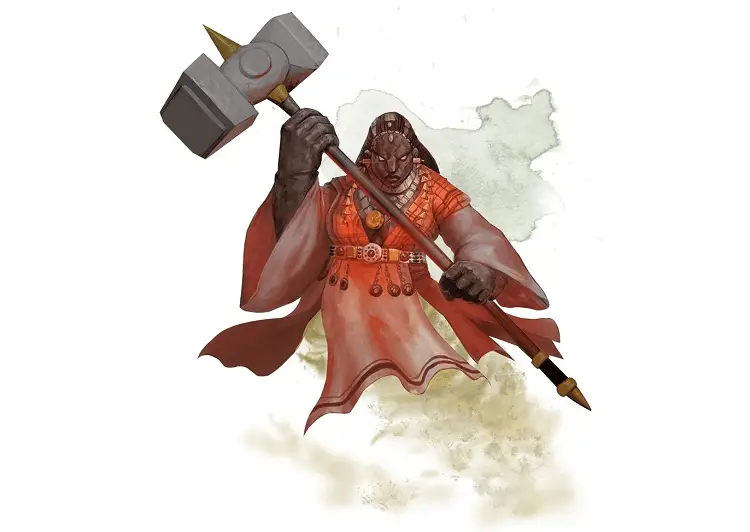
Most of the time, clerics can’t use martial weapons, which makes their weapon choices a little bit more limited. If you choose the War, Tempest, or Twilight domain, your proficiencies will include martial weapons.
In this situation, you might want to grab the maul. Like paladins, clerics often have to kill the undead, and a maul is a great way to break up skeletons.
Suggested Feats
There are a few very good feats that can be done with mauls.
Here are just a few:
Crusher
Part of the fun of swinging around a huge hammer is being able to bully your opponents with how hard you hit them.
Keeping that in mind, this feat lets you push your targets 5 feet in any direction after dealing bludgeoning damage to them.
It also makes your critical hits even more powerful and gives you an advantage on all attacks against that creature until the start of your next turn.
It also comes with an attribute point that you can put into either strength or constitution, which is a nice bonus.
Fighting Initiate (Great Weapon Fighting)
Fighting Initiate is a great feat for a wide range of weapons because it gives them so many options.
In this situation, I strongly suggest Great Weapon Fighting, which lets you roll again whenever a damage die shows a 1 or 2.
For this feat to work, the weapon must be able to be used with two hands or be flexible, which makes the Maul the best choice.
Also, the Maul rolls two dice for damage, so 1 and 2 are often rolled. This makes this feat even more useful.
Savage Attacker
This feat is a lot like Great Weapon Fighting. Once per turn, you can reroll a melee weapon’s damage die and use either of the two results.
It isn’t very good on its own, but when combined with other reroll feats, it can let you do high damage consistently.
Great Weapon Master
As we’ve already said, this feat makes a heavy weapon much better by letting you take a -5 penalty to the attack roll in exchange for a +10 bonus to the damage roll.
This works really well against creatures like the Nightwalker that have a lot of hit points but a low AC.
This feat also helps you get the most out of your actions by letting you make another attack as a bonus action whenever you land a critical hit or bring a creature’s hit points down to 0.
Creatures that Use Mauls
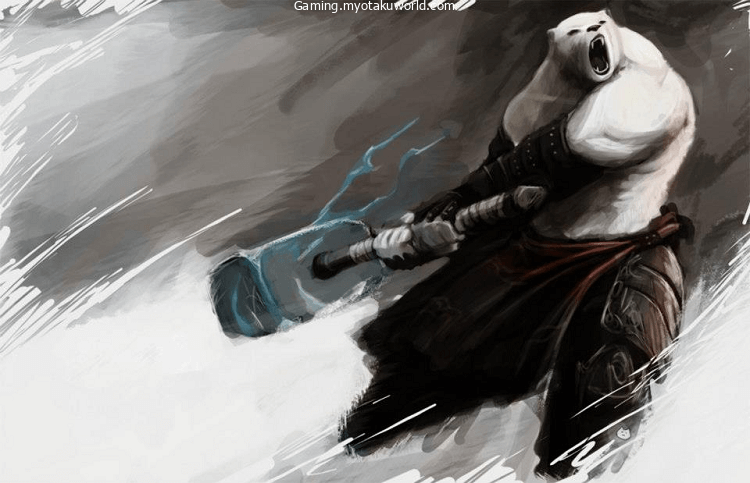
Of course, mauls can be used by more than just player characters.
On your journeys, you might run into a lot of creatures that are also interested in the sledgehammer.
Here are just a few examples:
Moss Lurker
The moss lurker looks like a troll and lives in forests and caves. The name comes from the fact that they are covered in moss and smell like damp fungus.
They either wear simple clothes made of leather and wool or nothing at all. To blend in with their surroundings, they often cover themselves in mud and grass.
When it comes to weapons, they like to use rocks as projectiles and traps. If they can’t do that, they use big weapons like the maul.
Storm Giant
These 26-foot-tall behemoths are the kind of giants who could be the most scary. They are strong enough to use the biggest weapons.
They are good at casting spells that depend on the weather, so they don’t have to fight in melee if they don’t want to.
However, when they do fight, their two-handed weapons can tear even the strongest enemies apart.
Most storm giants like to use the greatsword, but a few choose to use other weapons, like the greataxe and, of course, the maul.
Dao
The dao are genies from the Earth Elemental Plane, but they are often seen mining for gems on the Material Plane.
Even though they look like people, they have no legs and move around on dust clouds. They also have skin that is as hard as rock and can easily dig through stone.
Even though they have magical skills, they prefer to fight in close quarters with their huge mauls, which can knock an opponent down if they fail a DC 18 strength check.
Famous Mauls
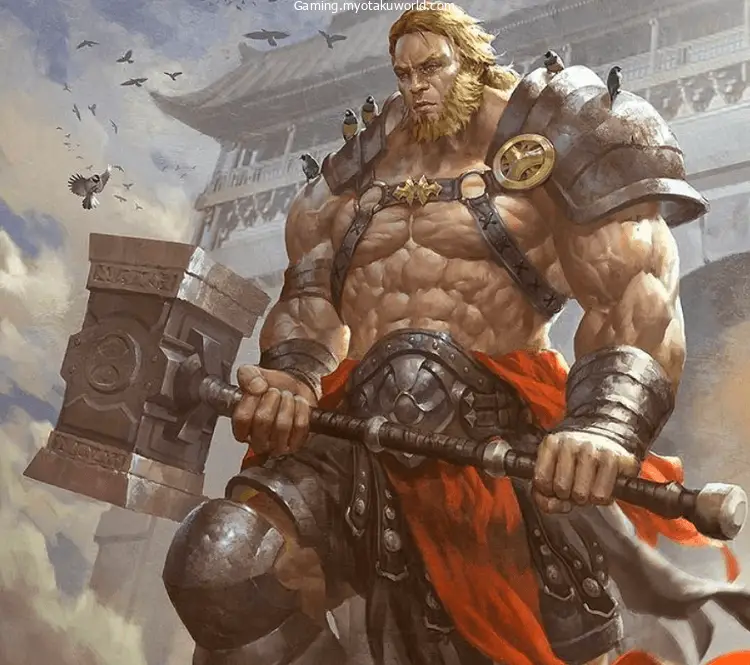
Maul of the Titans
An 8 ft. long mallet. Even though it looks like a maul and is even called a “maul,” it has the stats of a +3 greatclub.
It does three times as much damage to inanimate objects, which makes it great for breaking down walls and bridges.
But because it requires a lot of strength, most characters won’t be able to use it very well. Anyone with a strength score of less than 18 will get a -4 penalty on all attack rolls.
Matalotok
This cold iron maul is owned by the demon lord Kostchtchie. It is also called Frost Father or The Maul of Brutal Endings.
The Prince of Wrath uses this black hammer to do a lot of cold damage to his enemies while he himself is completely immune to the cold.
Pyremaul
This maul is Grand Legate Phaestor’s flaming weapon. He is the leader of Vulkanon and is a fire giant. This hammer is made of deep red iron and a magical fire opal. It has a flame that never goes out.
It is different from other things because it has three different states: dormant, awakened, and exalted. As it moves through these states, it gets stronger and stronger until it can turn anything it hits into ash.
The Magmahammer of Dumathoin
It makes sense that the dwarven god of mining would have one of the most powerful mauls in the world.
It’s a hammer made of magma, as the name suggests.
So, instead of bludgeoning damage, it causes fire damage.
The Great Mallet of Silvanus
Foresters often pray to Silvanus, the god of nature. Even so, the Oak Father likes a maul better than an axe.
When he reduces a creature to 0 hit points with his +5 maul, he can make more attacks.
Similar Weapons
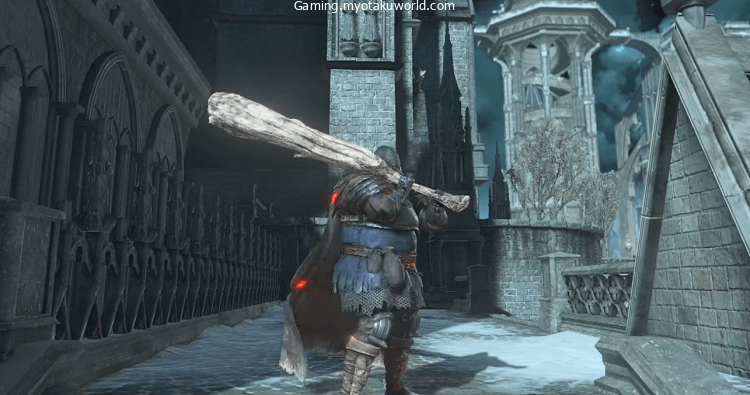
Greatsword
The greatsword is almost the same as the maul, except that it cuts instead of smashing.
It costs 50gp, which is five times more, and it weighs 6lb less.
Aside from that, it’s the same weapon with the same properties.
Greatclub
Since a greatclub is just a simple version of the maul, you don’t need to know how to use martial weapons to use it.
It does 1d8 bludgeoning damage, which is a little less than most weapons, but it isn’t heavy, so small creatures can use it without any trouble.
Quarterstaff
It could be said that the quarterstaff is just a better greatclub. When used with one hand, it does 1d6 damage by hitting.
But because it is versatile, using it with both hands increases its damage, making it the same as the greatclub with 1d8 bludgeoning damage.
It’s a simple weapon that doesn’t have the heavy property, just like the greatclub, but it doesn’t have the two-handed property, so it can be used with a shield.
If you can get your hands on a quarterstaff instead of a greatclub, there’s really no reason to use the greatclub. It’s better in every way.
Warhammer
The warhammer is a weapon, just like the maul. It can be used in many different ways. When used with one hand, it does 1d8 damage by hitting, but when used with both hands, it does 1d10 damage.
It’s not heavy or two-handed, but it still does good damage, so if you’re looking for a maul that you can use with a shield, this might be the best choice.
FAQs
What is a Maul?
The hammer is big. Imagine a sledgehammer that is a bit stronger so that it can be used in battle. That’s pretty much it.
Is the Maul Good or Bad?
Even though it’s not the best weapon in the game, I’d say it’s a very good one. It’s cheap, doesn’t do as much damage as a greatsword, and does a type of damage that can take advantage of the weaknesses of many creatures. It’s also useful outside of battle because you can use it to break through weak walls, doors, and floors. It’s not a stealthy weapon and takes up a lot of room, but in the right hands, you’ll be surprised at how useful it is.
What is the Price of a Maul?
It’s 10gp. For a weapon of its size, this makes it very cheap.
What is the Weight of a Maul?
It’s 10lb. This makes it exceptionally heavy, even for a weapon of its size.
Can a Dwarf Use a Maul?
Yes. Dwarves are considered medium-sized creatures, so the heavy property won’t hurt them. Still, they’ll have to choose a class or take a feat that lets them use mauls, since their racial feat Dwarven Combat Training only lets them use battleaxes, handaxes, light hammers, and warhammers.
Is 2d6 Better than 1d12?
This will depend on how much you like to gamble. If you want the average damage to stay the same, you should use 2d6. If you want to roll a 12, the best die to use is 1d12. With 2d6, you can’t roll a 1, but it’s less likely to roll a 2 than a 1 with 1d12. In short, 2d6 will always give you the same number in the middle, while 1d12 is a bit more random.
